STATE FEDERATION OF LABOR AROUSED.
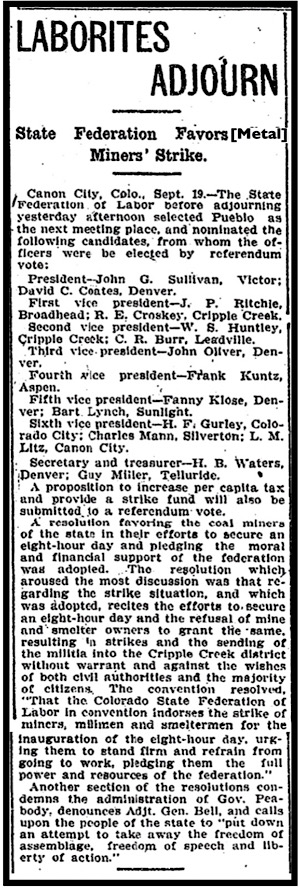
During the week of September 14-19, the Colorado State Federation of Labor was in session at Canon City and realizing the oppressing domination of Colorado militarism and understanding that all organized labor was in imminent danger of military suppression by the determined and lawless methods used to crush the Western Federation of Miners, passed unanimously the following resolutions:
Whereas, A gatling gun, the property of the state of Colorado, supposed to be used by the Colorado militia to uphold the laws of the state of Colorado, without class distinction, has been loaned and for the past six months has been in the Standard mill at Colorado City; and,
Whereas, Such loaning of the property of the state of Colorado is not only not good public policy, but is a detriment to the interests of the state and is without doubt at the behests of certain citizens for the purpose of intimidating other residents of Colorado City and is distinctly a case of arming one class of citizens against another, which is absolutely against the constitution, wherein equal privileges are guaranteed to all; therefore be it
Resolved, By the Colorado State Federation of Labor, in convention assembled, that the action of the officers of the Colorado National guard, and especially of Governor Peabody as commander-in-chief, be denounced as absolutely without warrant or precedent and as against the best interests of the state and dictates of good government.
Whereas, On the 28th day of July, 1903, the Sun and Moon transformer at Idaho Springs, Colo., was blown up by means and persons as yet unknown; and,
Whereas, There is a certain organization in Idaho Springs known as the Citizens’ Protective league, composed of all classes except organized labor and organized for the purpose of antagonizing labor in their efforts to better their conditions; and,
Whereas, Said Citizens’ league without warrant of law, aided and abetted by the sworn peace officers of the county, did take from their homes and imprison certain members of organized labor for certain affiliations and did after said imprisonment as an organized mob under the direction of the said Citizens’ Protective league (did) expel said members of organized labor from Idaho Springs with a warning to never return on pain of death and did banish said members of organized labor from their homes and families; and
Whereas, The district judge of Clear Creek county, presided over by Judge Frank W. Owers, has in the trial of the cases instituted by the banished members of organized labor against the members of the mob shown a spirit of fairness, as refreshing as it is rare in cases where a clash has arisen between labor and the capitalistic class; and ,
Whereas, The said Judge Owers has publicly declared from the bench that it is his purpose to administer the laws of the state of Colorado regardless of class or caste; therefore be it
Resolved, By the Colorado State Federation of Labor, in convention assembled, that we do strongly commend the action of Judge Owers in meeting out exact justice to all violators of the law; and that a copy of these resolutions be furnished Judge Owers under the seal of the Colorado State Federation of Labor.
Continue reading “Hellraisers Journal: Convention of the Colorado Federation of Labor Condemns Militarism in Cripple Creek Strike Zone” →
 —————
—————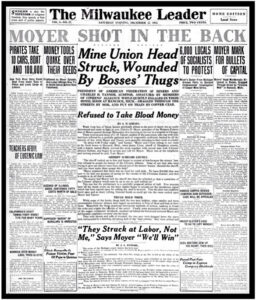 Last night at about 8:30 p.m. Sheriff Cruse and a “committee” paid a visit to the Scott Hotel in Hancock. They went to the room of Charles Moyer, President of the Western Federation of Miners. The “committee” was determined that the leaders of the W. F. of M. should reconsider their refusal to accept any donations from the Citizens’ Alliance to the families of the victims of the Italian Hall Massacre. Mr. Moyer remained adamant that donations from the Citizens’ Alliance amounted to blood money and that the union would bury it’s own dead.
Last night at about 8:30 p.m. Sheriff Cruse and a “committee” paid a visit to the Scott Hotel in Hancock. They went to the room of Charles Moyer, President of the Western Federation of Miners. The “committee” was determined that the leaders of the W. F. of M. should reconsider their refusal to accept any donations from the Citizens’ Alliance to the families of the victims of the Italian Hall Massacre. Mr. Moyer remained adamant that donations from the Citizens’ Alliance amounted to blood money and that the union would bury it’s own dead.
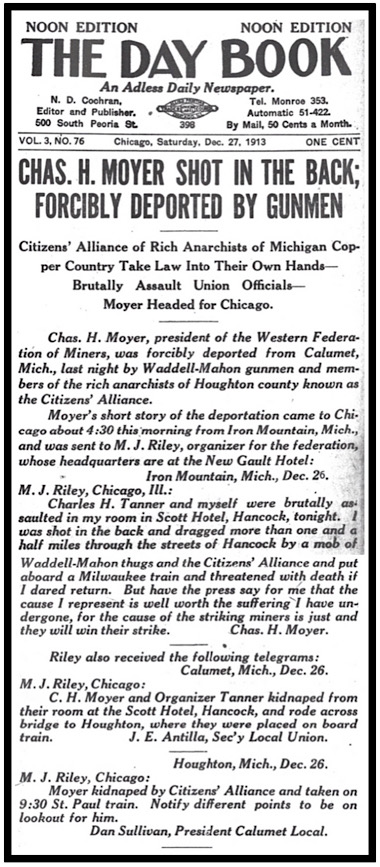
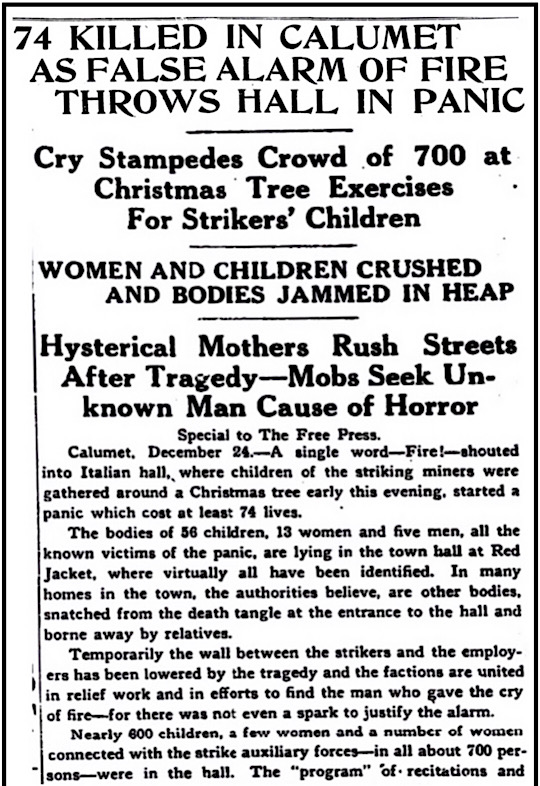
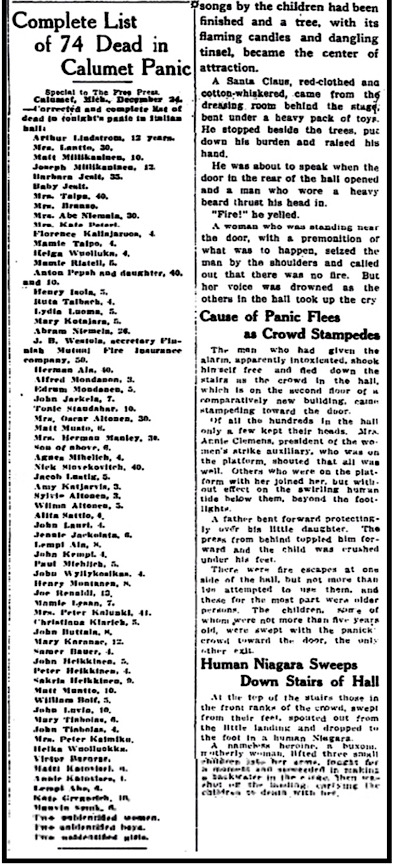
 —————
—————
 —————-
—————-